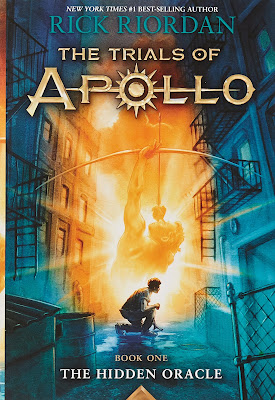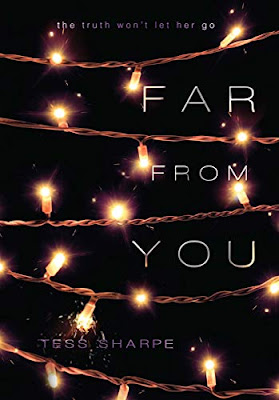Book Review: Every Heart a Doorway by Seanan McGuire
Goodreads Description: Children have always disappeared under the right conditions; slipping through the shadows under a bed or at the back of a wardrobe, tumbling down rabbit holes and into old wells, and emerging somewhere... else.
But magical lands have little need for used-up miracle children.
Nancy tumbled once, but now she’s back. The things she’s experienced... they change a person. The children under Miss West’s care understand all too well. And each of them is seeking a way back to their own fantasy world.
But Nancy’s arrival marks a change at the Home. There’s a darkness just around each corner, and when tragedy strikes, it’s up to Nancy and her new-found schoolmates to get to the heart of the matter.
No matter the cost.
My Review: Portal fantasies have a long history in children's fiction, but what happens when the portals close and we have to head on home? How do you go back to ordinary after experiencing the extraordinary? Seanan McGuire explores these questions by looking at the psychological effects of losing the one place we really belong.
When teenagers return from their portal worlds, they’re often confused, lost, and desperate to return to their fantasy worlds, leading parents and friends to think they’ve gone mad. That’s where Eleanor West comes in. A left behind herself, Eleanor has opened a home for children who have walked between worlds to save them from mental institutions or abuse at the hands of their families. Funnily enough, the school Eleanor constructs functions much like a residential treatment facility. The kids live there, they go to school, but they also attend therapy-like sessions where they discuss the worlds they came from, process their experiences, and attempt to move on. While the story doesn't focus on this therapy aspect (as there's a murder mystery afoot), it was refreshing to see therapy represented in a positive light, especially with the fantasy elements layered in. Many writers vilify the therapy process for cheap drama (the One Flew Over the Cuckoo's nest effect), but Eleanor's home is represented as a safe space, possibly the only one available to them in our world. The teachers/counsellors are gentle and supportive, the environment facilitates healing, and characters are able to self-actualize by being true to themselves, rather than forcing themselves to fit a world that doesn't accept them. It would’ve been cool to see more of this, but there is a murder to solve, so I can’t fault the book from moving on.
The book also focuses a lot on family – both the found families characters discover within the school, and the original families that may love but never truly understand or accept them. The way the story represents letting go of original and abusive families in order to find love and acceptance in a found family is quite queer. Of course, the book is very queer just based on representation – it has trans, asexual, and gender non-conforming characters – it pretty much covers the whole rainbow, but the approach to otherness and belonging takes on a very queer perspective that many will find comforting. The promise of a world that unconditionally accepts and loves you for who you are is a very tempting premise to queer kids growing up in a world that tells them they're inherently wrong, weird, and disgusting.
The main character, Nancy, has some of the typical traits of plain or invisible YA protagonists. Some YA protags are Bella Swan clones, with little to no personality (aside from being 'nice') so they can be used as blank slates for readers to project themselves onto. While Nancy does fall into this category of boring, blank main characters, McGuire changes things up by creating relevant plot and character reasons for why Nancy is such a wall flower. Nancy's perfect portal world was the land of the dead, where she spent a lot of time impersonating a statue and aspiring to be unmoving and unfeeling. When she arrives back in the real world, she finds it difficult to reconnect to her body and emotions, triggering catatonic-like behaviours. McGuire's interpretation of the "bland wall flower" is a fascinating deconstruction of a writing trend, but ultimately I still found myself bored and annoyed with Nancy's lack of motivation or personality. I wish she had been a secondary character and allowed someone with more agency to take on the main role.
All in all, this was a beautiful story with many fascinating aspects that I could probably blather on about for another few paragraphs. I'm not usually a fan of school stories anymore, since they often feel formulaic to me, but the heart at the center of this story -- that queer nonsense about belonging and otherness-- hits the nail so hard on the head that it's an instant win. This book has a way of seeing the unseen, acknowledging that deep desire for love and acceptance, and promising that it's out there, just waiting for you, if you're brave enough to go out and look for it.
TL;DR: All in all, 4/5 stars. A beautifully queer story that centers around a tense murder mystery.
















